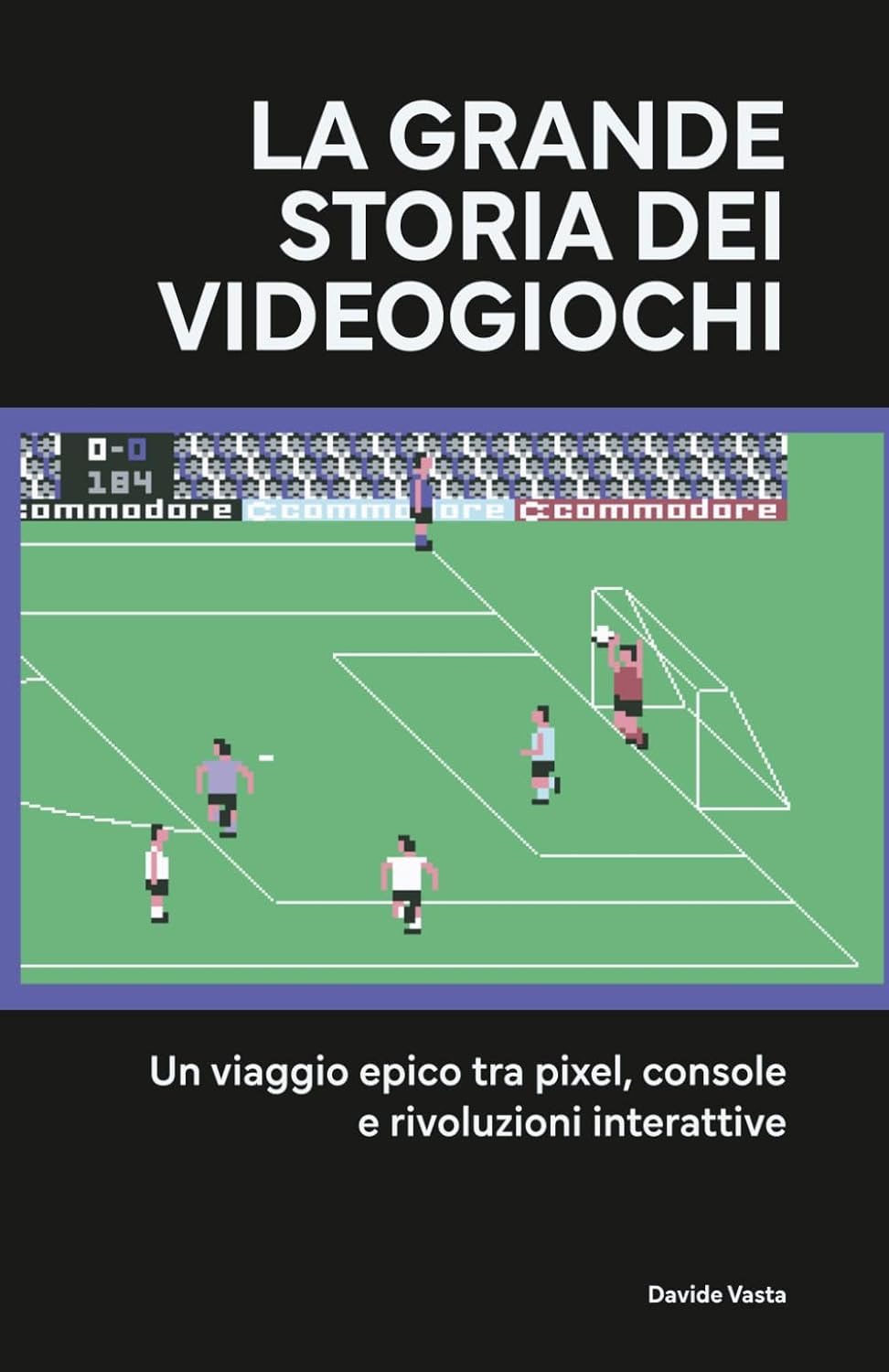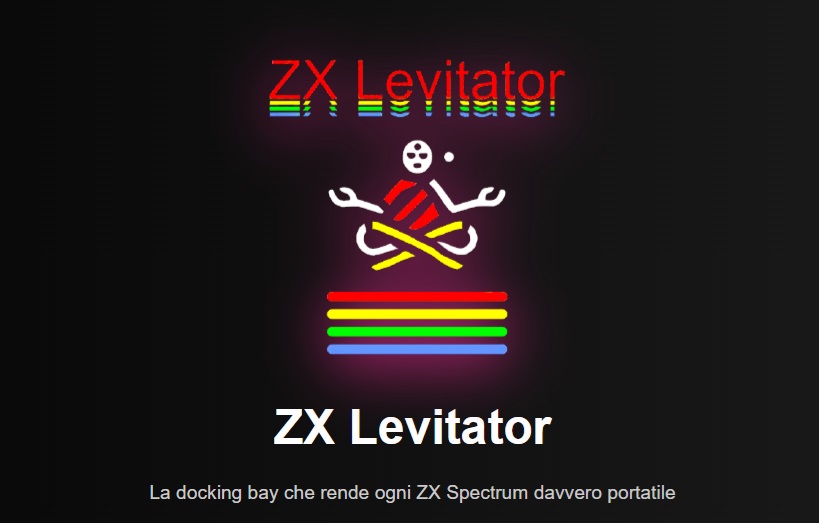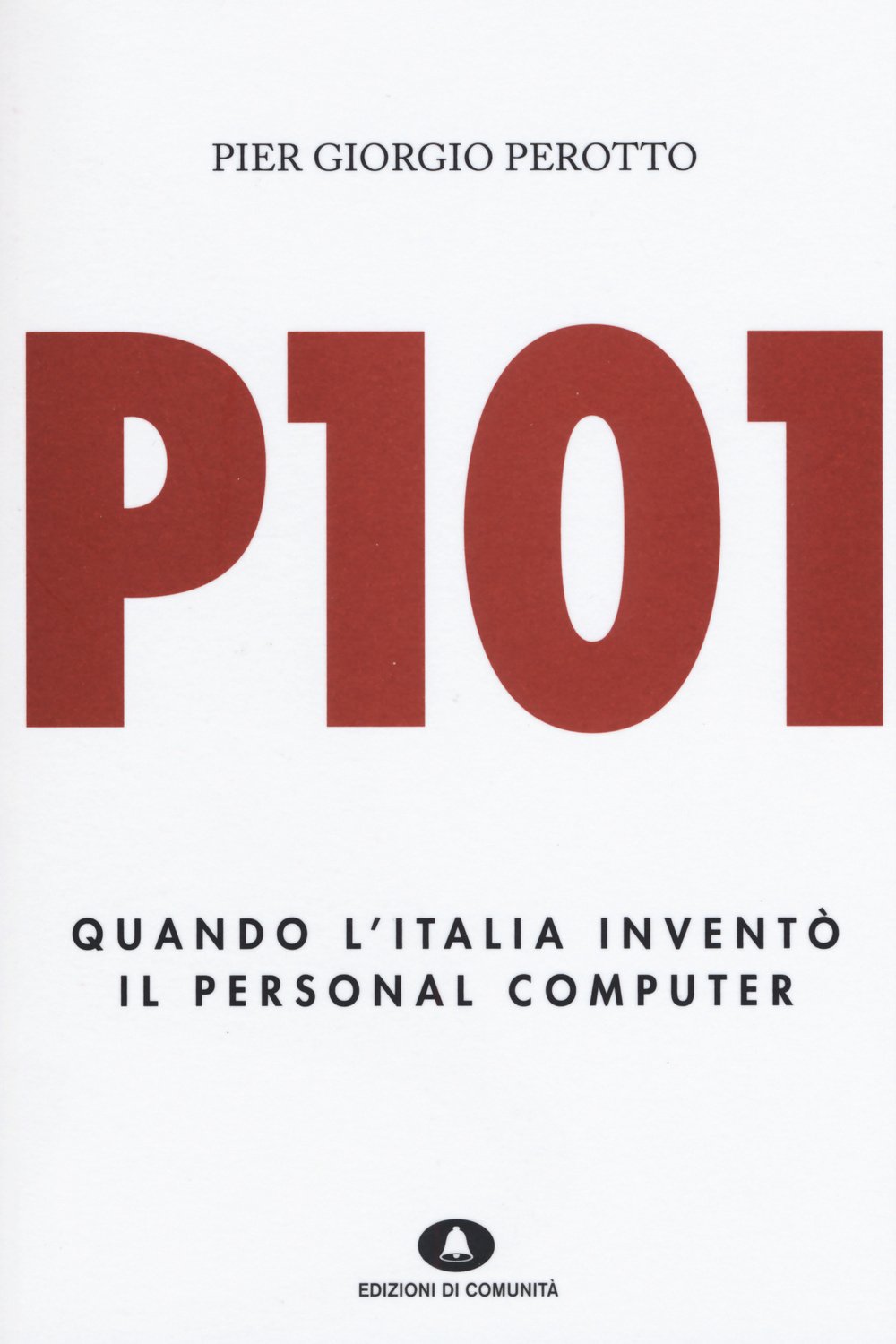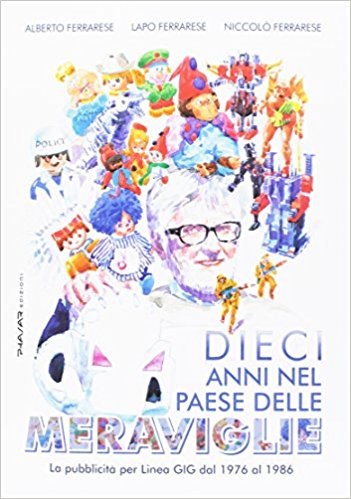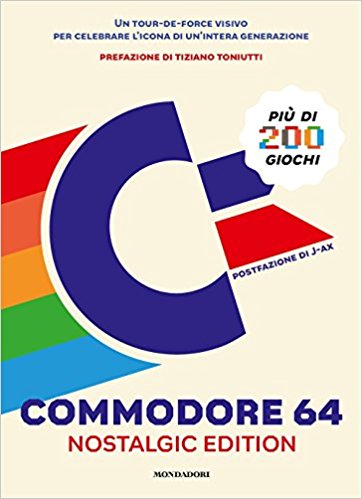Before you uncover all the secrets of this project, I’d like to offer a brief introduction. As you’ll discover, the project began a year ago, when I was contacted by Gianluca Girelli, who proposed this “re-release” of my adventure games published in the 1980s.
Compared to other proposals I’d previously received, which involved simple literal translations of the games, in this case the scope of the project went much further, and involved aspects such as expanding the gameplay structure with a consequent narrative revision, “mitigating” aspects that in the original game had penalized the playability (and longevity) of the adventures, and of course the equally important aspect of their multi-platform release.
Faced with the prospect of an even wider audience enjoying the experience of starring in those stories, I accepted the proposal without hesitation, and over time I have come to appreciate the efforts and commitment (and passion) of Gianluca Girelli and Garry Francis in developing these new “international” and “universal” (from a compatibility standpoint) editions of the first adventure series.
A final, no less important note: This project allowed us to “resurrect” the first of the three unpublished games, which, with the closure of the two magazines, Explorer and Viking, had never seen the light of day and remained in the form of notes, sketches, and maps. Marco Vallarino’s contribution also played a crucial role in this revival. From a very young player of my adventure games, he later became an author himself, and in this case, he helped us enormously to finally bring the first game of the trilogy, “Sorsi di terrore,” to life, which in its final edition became “A Taste of Terror.” Regarding this and the other two games we hope to revive and complete in the same way, I’ll just conclude by saying that these games were introduced to me by a long-deceased friend and colleague, and the original author has remained unknown since my colleague’s death, his identity having been lost to us due to a lack of evidence and the many years that have passed. Wherever he is, our first and foremost thanks go to him for the initial genesis of “A Taste of Terror” and the other two titles we hope to publish later.
Bonaventura Di Bello
P.S. Before leaving you to the interview with Gianluca and Garry, a short series of FAQs that will help you discover the project’s most important details.
1. What is The BDB Project?
The BDB Project is an initiative to rediscover and rebuild 69 Italian text adventures from the 1980s written by Bonaventura Di Bello for magazines such as Epic 3000, Explorer and Viking Adventures in Italiano. The goal is to translate, modernise, and republish them for a modern audience.
2. Who are the team members?
The core team includes Bonaventura Di Bello (the original author), Gianluca Girelli (project founder, translator and developer) and Garry Francis (reverse engineer, translator, designer and developer).
3. Where do the original games come from?
The games were originally published on the cover tapes that accompanied Italian magazines from May 1986 to December 1987. There were three adventures on each tape. The games from Epic 3000 were for the ZX Spectrum for a total of 21 games. The games from Explorer were for the Commodore 64 and MSX for a total of 36 games. The games from Viking Adventures in Italiano were for the Commodore 64 and ZX Spectrum for a total of 33 games. Your more observant readers will note that that’s a total of 90 games, but the early games in Explorer were ports of the ZX Spectrum games from Epic 3000, so there is really only 69 unique games.
4. Which games were released first by the project?
The first release was the three games from the Kenneth Johnson trilogy: Wild West, Tin Star and Desperados. These were released for ParserComp 2025 in June 2025, but we didn’t promote the project at that time. Three additional games were released for the formal launch of the project in October 2025. These were Caribbean Treasure, The Wrath of Anubis and Unknown Dimension.
5. How are the games being modernised?
Modern adventure players tend to be very lazy. They don’t like drawing maps or taking notes and they’ll quit as soon as they strike a maze or a difficult puzzle or can’t work out how to phrase a command. The challenge for us was to make the games easy to play, but still present an interesting challenge to the player. The updated versions preserve the spirit of the originals while removing frustrating elements like sudden death, tight inventory limits, illogical puzzles and unwinnable situations. The games now feature a multi-word parser, similar to the games of Infocom. This means you can use commands like GET THE BIG BLUE BALL AND PUT IT IN THE CARDBOARD BOX. Most of the time, you only need a verb and a noun, just like in the old games, so the previous command could be expressed as GET BALL. PUT IT IN BOX. There are now more synonyms, richer descriptions and a lot more things you can try, even if they’re not necessary to solve the game. There’s also a built-in hint system for if you get stuck.
6. Which platforms will the games be available on?
You’ll be able to play all the games online in a browser. If you want to download the games to play offline, you can download the z5 file and play it in any Z-code interpreter for Linux, Mac, Windows and even next-gen Amigas. You can also play it on Android and iOS devices, but it’s no fun playing on a mobile phone because the virtual keyboard takes up most of the screen space. There are a lot of Z-code interpreters for retro computers. To make life easier for retro fans, we’re providing disk images for some of the more popular systems, such as Atari, BBC and Commodore 8-bit and 16-bit computers. We might do disk images for other systems as well, if there’s a demand for it.
7. Where can players follow project updates?
The BDB Project is being hosted on itch.io, which is the biggest indie game hosting service in the world. If you create a free itch.io account, you can follow the project and then you’ll get an email from itch.io whenever a new game is released or we do an update. The official home page for the project is The BDB Project.
INTERVIEW WITH THE AUTHORS OF THE NEW EDITIONS
Let’s now discover, interviewing Gianluca Girelli and Garry Francis, other interesting aspects of this project.
What criteria guided the release order of the games?
Gianluca: The first game I decided to work on was Wild West, simply because it was the first of BDB’s games that I played way back in 1987. I had fond memories of it, but never managed to beat it back in the day and I wanted to see how it ended. From that point on, I decided to work on the entire Kenneth Johnson trilogy for consistency reasons.
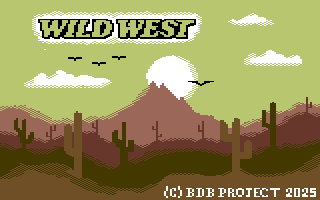
Garry: Each of the games features a named protagonist, like Kenneth Johnson, that Gianluca mentioned. When I was collecting all the reference materials for the games, I created a folder for each of the protagonists, then started working through them in alphabetical order. Alan Simmons came first, so Caribbean Treasure was the first game I worked on, then Amos Newton. Other than that, I just worked on the ones that appealed to me. I liked the sound of the Ken Richards game The Wrath of Anubis, even though I didn’t know what it was about, so that was another early choice.
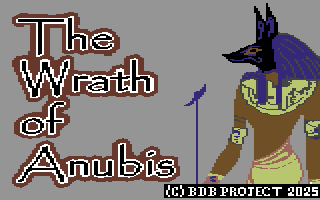
Are there plans to include new adventures inspired by BDB’s original style?
Gianluca: Not at the moment. Expanding the universe with new adventures inspired by the originals is tempting, but we already have our hands full.
Garry: Agreed. Both Gianluca and I write our own adventures and Gianluca has a hectic career, so we’re pretty busy anyway. As the project progresses, we may see the potential to write sequels for some of the protagonists, but that’s really beyond the scope of the project. Mind you, it would be great if we could get Bonaventura inspired to design or write some more games.
Which tools are currently being used for reconstruction and adaptation?
Gianluca: All the coding is done using Inform 6 and the PunyInform library. Maps are drawn with Trizbort. The cover images for the Kenneth Johnson trilogy were mostly hand-drawn using Multipaint, whereas Garry uses Fireworks.
Garry: We standardised on the Commodore 64 games, as all the games were available for this computer. The Commodore 64 games were originally written using The Quill, so I used UnQuill to extract all the data from the tape files, manually edited the data and cleaned it up in a text editor. I then translated all the strings using Google Translate, created a skeleton of the Inform 6 code and copied the translated strings for room descriptions and objects into the skeleton.
The hardest part was working out the vocabulary, as The Quill only uses the first four characters of each word and you don’t know whether it’s for a verb or a noun or both without knowing the context. I created translation tables for the vocabulary for each game in a Word document and painstakingly worked out the full word and translated it based on things like how it was used in the game. This was not easy for someone who does not read or speak Italian. There were some words that I couldn’t work out and Gianluca helped me with those. In fact, there were many words that even he couldn’t work out.
I reverse engineered the maps from The Quill data and drew them on paper, then transferred this to Trizbort so that they looked pretty and I could move things around as the need arose. I was then able to transfer the directions to the game skeleton, but there was more work yet to come.
There was a lot more to it than what I’m describing here, but it should give you a general idea of the process. All in all, it took 6 months to create the game skeletons for all 69 games, as well as to translate all the original articles and walkthroughs from the magazines. And we hadn’t even started on the game logic! Everything was done manually. There was no GenAI used at any stage.
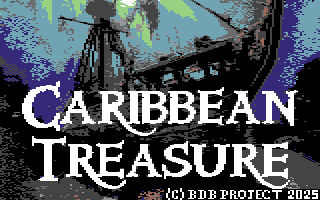
How are copyright and historical preservation handled?
Gianluca: The copyright for the original games remains with Bonaventura, as he’s the original author. He granted us permission to make full use of the intellectual property to enhance the games and adapt them for a modern audience. As a translation is a new work and this has been extensively changed anyway, the copyright for the new work remains with us. The complete source code for the new versions will be made available through a GitHub repository, but we haven’t set this up yet. Preservation of the original games is beyond the scope of the project.
Garry: I should mention that there was a great project called Progetto Lazzaro (Project Lazarus) that ran from around 1999 to 2000. This project searched for and recorded all the Italian magazine adventures from the 1980s. The C64 tape images can now be downloaded from Ready64 and the ZX Spectrum tape images can be downloaded from Spectrum Computing. I haven’t found an archive for the MSX games.
Are there plans to localise the games into other languages besides English and Italian?
Gianluca: The driver behind the project was to make the games available to an international audience that never had the chance to play the games in the 1980s due to the language barrier. Right now, English is possibly the most widely-spoken language on Earth, so there’s no need to localise the games in other languages. Besides, job and family constraints don’t allow for any deviation form the original project, although things might change in the future, should the team become bigger.
Garry: This was one of the first questions I asked Gianluca when the project started and he didn’t think there was a demand for an Italian version, so it’s English only for the time being. Localisation is not an easy task, as it’s not just a case of translating strings, but modifying the parser, the grammar and the actions to account for differences in the structure and syntax of the language. There is no Italian version of the PunyInform library, but there is a French and Spanish version, so they would be the most likely candidates for localisation. If someone was to do an Italian version of the library, then that would improve the odds for an Italian localisation, but someone else would have to do it.
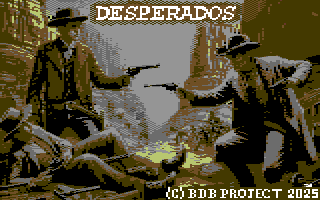
Will the project contribute to rediscovering Italy’s videogame heritage?
Gianluca: I sure hope so, but only time will tell.
Garry: Good question. It probably won’t as the project is in English, but I would hope that it draws attention to the original games. It would be really nice if a bilingual player was to play one or two of the original Italian games and The BDB Project’s adaptations and write a comparative review.
Is there any intent to release extra content such as interviews, documentaries, or making-of materials?
Gianluca: Sure. The current plan is to expand the game library with at least another batch of games, and then (should time permit), add making-of material, dev logs, post-mortem articles and the like.
Garry: I’m not sure what Gianluca has in mind, but I wouldn’t mind writing a post-mortem on each game to describe the changes we made, the reasons for those changes and so on. I reckon this would make for some interesting reading. However, the nature of a post-mortem like this would contain a lot of spoilers and that would spoil it for anyone who hasn’t played the game.
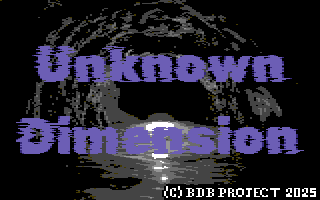
Will there be an online community for BDB adventure fans?
Gianluca: This is a very interesting point, but at present the team is not big enough to allow for redesigning, coding, testing, documenting and publishing the games while being constantly present on social media to monitor the discussions.
Garry: I don’t want to set up a web site, but I decided to setup up a Discord server instead. Gianluca wasn’t keen, but I’m on Discord pretty regularly, so I could keep an eye on things. What do this blog’s readers think?
Will the original Italian versions be made available for historical comparison?
Gianluca: The original Italian versions are the property and copyright of the original authors, so we don’t plan to do an archive.
Garry: True, but as I mentioned above, the games are already archived by Ready64, Spectrum Computing and probably others, so anyone interested in the original games can still get them. Ready64 also has scans of the original magazines, except for Viking no. 2, so if anyone has that issue, please, please, please scan it and submit it to Ready64.
Which games will you be working on next?
Gianluca: I’ve started working on the two Murray Shannon games: I Semi del Male (The Seeds of Evil) and L’Orrore di Goldmine City (The Horror of Goldmine City). The story in these doesn’t make much sense, so I need to work on that aspect first.
Garry: I’ve written a rough first draft of the other two Amos Newton games: Mente Aliena, Parte I: Straniero in Terra (Alien Mind Part 1) and Mente Aliena Parte II: L’Astronave Nemica (Alien Mind Part 2). In the originals, Amos Newton uses a metallic sphere to control the mind of an alien and kill Earthlings to return to his home planet, but this might be a bit distasteful. I need to think about this.
I’ve also written a rough first draft of Anthropos: Homo Sapiens (set in the stone age), Argon: L’Orrore di Providence (The Horror of Providence) (about an occultist investigating some gruesome murders) and Harry O’Hara: Spectral House (basically a ghost hunt). If anyone wants us to do a particular game, I’m happy to give that a higher priority.
PROJECT TIMELINE
| Year | Event | Brief description |
| 1986–1987 | Original publication | Bonaventura Di Bello’s text adventures are published in various Italian magazines such as Epic 3000, Explorer and Viking. |
| August 2024 | Birth of the project | Gianluca Girelli contacts BDB to translate and update the games. A collaboration with Garry Francis begins. |
| June 2025 | ParserComp 2025 | The Kenneth Johnson trilogy and A Taste of Terror are published. The project is no longer secret, but is not formally announced. |
| October 2025 | Formal announcement | The project is announced on intfiction.org with post-comp versions of the Kenneth Johnson trilogy and three new games. |
| 2026+ | Periodical publications | New updated versions of games are released on itch.io, aiming for an average of one title per month. |
ROLES AND RESPONSIBILITIES
We invite anyone who would like to learn more about the video games and books created by Bonaventura Di Bello to read the following interviews previously published on Retrogaming Planet:
Intervista a Bonaventura Di Bello storico divulgatore e sviluppatore di videogames

